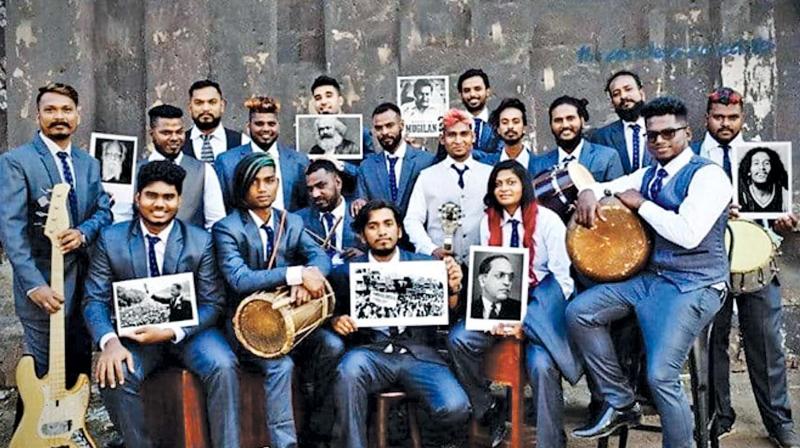Torching prejudice through gumption and Gaana
\'The Casteless Collective\', a band of youngsters is belting out Gaana - the music of Chennai\'s subjugates - in all its raw and tainted glory.

Singing the musical form - Gaana - that has its origins in funeral music, accompanied by percussion socially associated with the rhythms of the graveyard, they have posed numerous aesthetic, social and political questions to the art world.
The band members are Tenma, leader and music producer, singers Muthu, Bala Chandar, Isaivani, Arivu and Chellamuthu, Dharani (dholak), Sarath (satti), Gautham (katta molam), Nandan (parai and tavil), Manu (drums) and Sahib (guitar).
Singer, rapper and songwriter Arivu says, “The basic idea of the band is to bring out social issues like inequality in our society. I want the listeners to celebrate the pain and not to empathise for our songs. The songs I write have a deeper understanding and that's why it sounds global too.
'The Casteless Collective' has been spurring its own hip-hop movement, which engages with the current political and social issues in the state. Founded by Kabali director Pa Ranjith, who brought together artistes practising different musical forms in Chennai, for this cross-cultural collaboration of indie urban music, its effect can already be felt.
“When Ranjith contacted me two years ago, we wanted to explore multiple genres. I'm happy that it has turned out well and gaana is recognised in most of the reality shows now. The stigma has changed, but issues like untouchability and culture division are still present,” says Tenma, band leader.
“People don't want to be questioned. A social change is essential for people who do sanitary works. Independent music is all about bringing people together” he adds. Tenma is also making his debut as a music director for the movie Irandam Ulagaporin Kadaisi Gundu, produced by Pa Ranjith.
The band has not only impressed with its no-holds-barred music but has also set out on an artistic-political path that is uncharted. Its music is rooted in the sounds of Chennai's suppressed community, especially those who live in North Chennai.
For instance 'Quota Song' by the band, which has music entwined with Dalit cultural assertion, is a combo of indie and urban music. Its effect can already be felt when the audience dance to the fervent beats of protest music, you know the songs have reached home.
Addressing this, guitarist Sahib says, “It is an angry song, fear of oppression is dealt with in it. Apart from the music, the sound that it creates brings out the emotions whether it's clean, dirty or fun.”
“Of course we have imbibed western flavours in our songs but the essence will remain the same,” explains Sahib about the influence of western rappers like Kendrick Lamar in their songs.
The politically charged songs of the Collective - the songs on honour killing, the lesbian song, the farmer song, and a song to celebrate the spirit of Chennai - will bring solace to all the marginalised communities, including the queer groups and the farmers who are being treated with complete social disregard in the country.
‘The Casteless Collective’ ensemble edifies that the music must be a reflective practice, not only for the artistes but for the dilettantes as well.
